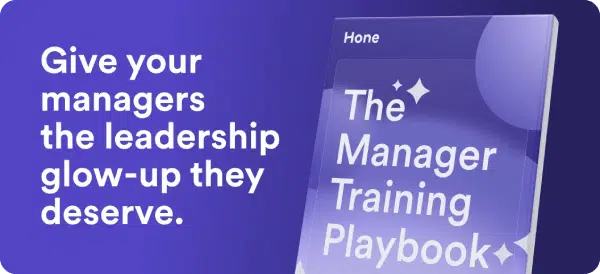Change is a constant in today’s fast-paced business environment, and organizations must remain agile and adaptable to stay competitive. The success of organizational change initiatives often depends on the willingness and ability of individual contributors (ICs) to embrace change and become change agents. This is where change management training for individual contributors becomes critical.
Organizations can create a culture of continuous improvement and innovation by providing ICs with the tools and knowledge they need to become effective change agents. However, it’s essential to recognize that each organization is unique, and change management strategies should be tailored to fit their specific context and characteristics.
Change Management Training for Individual Contributors
Change management training can help ICs develop the skills and mindset to drive organizational change. To effectively cater to diverse organizations, the following inclusive strategies can be implemented:
- Acknowledge the Diversity of Organizations: Before launching any change management training initiative, organizations should conduct a contextual analysis to understand their specific challenges, culture, and readiness for change. This analysis will help in designing a more targeted and effective change management plan.
- Involve Stakeholders Early: Engaging diverse stakeholders from different levels and departments in the change planning process is crucial. This ensures that various perspectives are considered and the change initiatives address their needs and concerns.
- Offer a Menu of Training Options: Organizations can provide various training options to cater to different learning styles and preferences. These could include in-person workshops, online modules, coaching sessions, or peer-to-peer learning opportunities.
- Emphasize Customization: Change management training programs should be customized based on the specific skills and competencies needed within the organization’s workforce. This flexibility allows organizations to focus on areas that require more attention, such as communication skills, leadership, or project management abilities.
The Role of Individual Contributors in Change Management
Fear and resistance to change management can be natural responses when something new comes up. ICs need the knowledge and skills learned over time to become true champions of change. Change management training for individual contributors should focus on communication, collaboration, problem-solving, and leadership, all while considering the organization’s unique needs.
The narrative is essential for leaders and facilitators to demonstrate a sense of belonging and why each IC is directly involved and contributing to the organization’s success. According to Harvard Business Review, the top 12% of compelling change stories featured leaders who paid significant attention to belonging. Each change agent must feel like they belong in your story. They must understand their role to commit to change and influence others. If not, it could be a lost cause or a difficult conversion to adapt.
The Benefits of ICs Embracing Change
Individual contributors play an essential role in the success of change management initiatives. They are often the ones most impacted by the change, so their support and engagement are critical to the initiative’s success. When individual contributors become champions of change, they can help to promote the initiative and encourage others to get on board. By sharing their positive experiences and benefits of the change, they can help increase adoption and support among their peers.
IC change agents can also improve communication by acting as a bridge between leadership and their colleagues. They can help convey the vision, benefits, and objectives of the change in a relatable and understandable way to their peers.
How to Overcome Challenges in Change Management
Are you familiar with the fixed vs. growth mindset model that originated from Stanford University’s Carol Dweck? Leaders who can lead and inspire a growth mindset are more likely to create effective change agents in their teams.
A growth mindset is characterized by a belief that skills and abilities can be developed through effort and learning. When each individual is encouraged to provide feedback and suggestions for improvement, true ownership occurs in the change management process. It no longer becomes a directive and more of a launch pad for new ideas and creative ways to improve and grow professionally.
Business professionals need goals to identify the purpose and initiate forward momentum. Measurable success helps define what is expected and how to get there, one step at a time. If individuals have unclear communication, they are left skeptical or assuming as they go. Try and avoid confusion by defining what success looks like across the organization, each team, and for all ICs.
Repetition and reinforced messaging must be integral to an effective training program to support sustainable change. Recognize and reward individual contributors who take the initiative and drive change. This can be done through performance evaluations, promotions, and other incentives. If central themes, terms, or practices are involved in the change, keep highlighting these or formally repeating them to improve implementation.
3 Strategies for Change Management Training for Individual Contributors (ICs)
Change management is never easy, no matter how big the new initiative is for your organization. Whether you are managing changes to processes, policies, or technologies, it’s important to find the right balance between informing and influencing how to promote new thoughts or habits. Here are a few areas to keep in mind throughout the process to hold steady and create impactful moments that can push your initiatives forward:
-
Provide Clear Communication to ICs
Effective communication ensures that all stakeholders know what is happening, why it is happening, and their roles in the change process. Organizations should establish a communication plan that outlines the objectives, audience, message, frequency, and communication channels. The plan should also include feedback mechanisms to allow stakeholders to provide input and ask questions.
2. Engage with Stakeholders
Engaging stakeholders in the change process ensures their needs, concerns, and perspectives are considered. Organizations should involve stakeholders in the change planning process through focus groups, surveys, or interviews. Creating a change coalition of committed stakeholders can help build support for the change and address any concerns or resistance.
3. Individual Skills Development in Each Training
Change management requires various skills, including communication, leadership, project management, and problem-solving. Ensuring that everyone involved in the change process has the necessary skills is essential. Organizations can provide training to individuals or groups, in-person or online, tailored to the organization’s specific needs. Coaching and mentoring should be provided to nurture IC champions and model new behavior.
Change management is never easy, no matter how big the new initiative is for your organization. Whether you are managing changes to processes, policies, or technologies, it’s important to find the right balance between informing and influencing how to promote new thoughts or habits.












